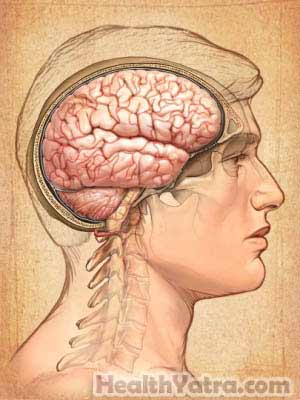সংজ্ঞা
Cognitive-behavioral therapy (CBT) is a form of talk therapy. This means that you discuss your thoughts, feelings, and behaviors with a mental health professional. CBT focuses on how the way you think affects the way you feel and act.
Your therapist helps you identify negative thoughts and evaluates how realistic these thoughts are. Then, he or she teaches you to unlearn negative thought patterns and learn new, helpful ones.
CBT is a problem-solving approach. While you cannot control other people or situations, you can control the way you perceive and react to a particular situation. CBT teaches you the skills to change your thinking. It can also help you manage your reactions to stressful people and situations.
পদ্ধতির কারণ
CBT is used to treat many health concerns. Some of these include:
- Depression and mood swings
- দুশ্চিন্তা
- ফোবিয়াস
- Feelings of extreme shyness
- মানসিক চাপ
- Panic disorders
- Post-traumatic stress disorder (PTSD)
- Obsessive-compulsive disorder (OCD)
- Eating disorders, including anorexia nervosa, bulimia nervosa, and obesity
- Insomnia and other sleep problems
- পদার্থ অপব্যবহার
- Chronic pain
- Difficulty with relationships
- কম আত্মসম্মান
- Poor coping skills
- Uncontrolled anger

সম্ভাব্য জটিলতা
CBT may not be effective for everyone. Talk to your therapist about your progress or other treatments that may help you.
কি আশা করা যায়
পদ্ধতির আগে
There is no specific preparation for CBT. You may be asked to fill out a questionnaire about your feelings.
পদ্ধতির বর্ণনা
You may receive CBT in one-on-one therapy sessions or in a group format. CBT can be divided into two parts: functional analysis এবং skills training.
Functional Analysis
You and your therapist will identify stressful situations. You will also determine the thoughts that lead to or worsen these situations. These thoughts will then be analyzed to see if they are realistic and appropriate. For example, your therapist may point out negative thought patterns, such as “I cannot handle this” or “people are laughing at me.”
Skills Training
Next, your therapist guides you to reduce unhealthy ways of thinking and to learn healthier ways. Instead of thinking “I cannot handle this,” you will learn to draw on your strengths: “I have handled difficult situations before, so I can handle this one.”
You will also learn to ask more questions about yourself before making a conclusion. For example, “Could those people be laughing at something other than me?” The goal is to replace irrational thought patterns with better ones.
Skills training takes a lot of practice. You will often be given “homework.” You might practice deep-breathing exercises or role-play how to act in certain social situations. For example, a person dealing with substance abuse might practice ways to decline an alcoholic drink.
Homework is vital to the success of CBT. You must practice new, rational responses until they replace your previous, unhealthy responses. Homework also allows you to try new skills. You will then be able to give feedback on which works best for you.
কতক্ষণ এটা লাগবে?
The length of an individual session is usually 50-100 minutes. Group sessions may last longer. Treatment sessions may occur 1-2 times per week for 12-16 weeks.
This is a general guideline. Depending on your situation, treatment may be longer or shorter. Keep in mind that it may take several tries to unlearn poor habits and to learn healthy ones.
Post-therapy Care
You may be given homework between sessions. You will need to practice the strategies you and your therapist have discussed.
Some therapists advise that you return for a check-up about three, six, and twelve months after therapy has ended. In addition, you may call your therapist whenever the need arises.
ফলাফল
The goal of CBT is to change your thought process. This will allow healthy and realistic responses to difficult situations. Many patients notice an improvement in their symptoms within 3-4 weeks of beginning CBT.
আপনার ডাক্তারকে কল করুন
If the thoughts, feelings, or other difficulties that led you to seek therapy are returning or worsening, call your doctor. If you have thoughts of hurting yourself or others, call your doctor or call for medical help right away.
